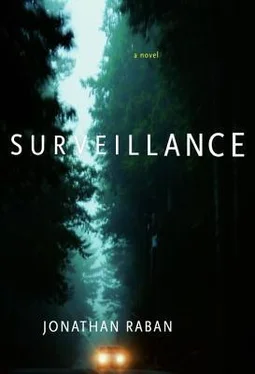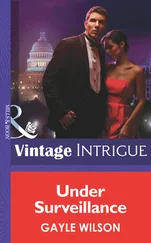Biding her time, Lucy had set about researching Vanags in the public library. She read his only other published book, a dry study of the Yalta treaty with the misleadingly catchpenny title of The Treacherous Pact. She tracked down articles he’d written for history journals — more dry stuff, with titles like “The Sovietization of Higher Education in Poland, 1951–1963.” In the 1970s, he wrote, rather less dryly, about the Cold War for Foreign Policy and Foreign Affairs , but she could make no connection at all between the footnote-happy historian and the author of Boy 381. August Vanags — associate professor of history, University of Washington, as he was billed at the foot of even his most recent articles, published in the mid-1990s, so apparently they never made him a full professor — seemed no more likely to pen this dazzling memoir than he was to sprout wings and fly.
She tried to hunt him down in books — about the war on the eastern front, the camps, the postwar refugees. She Googled “Lebensborn,” for at age six Vanags had been plucked from a Polish transit camp on the strength of his blue eyes and fair hair and taken to a castle in Bavaria to be Nazified. Since the boy didn’t know whether he was German, Lithuanian, Latvian, Polish, Estonian, Ukranian, or even, possibly, Jewish, he was glad of any nationality he could get. “I thought that being German meant that I’d be given a uniform with silver buttons and as much bratwurst as I could eat,” Vanags wrote. The German family to whom he was given for adoption sent him back after a month because, the boy thought, “I ate too much sausage”—the sausages in question being stolen from the butcher’s next door. Soon he was back on another train, bound for Poland and the children’s camp at Dzierzazna. Being six, he thought that being on a train, any train, was ample compensation for having lost yet another set of parents.
He knew he was called August and had taken the Latvian name Vanags as a flag of convenience. It authenticated him as a gentile and gave him a native land. A lucky choice, for Latvian-American voluntary organizations took care of him when the war at last came to an end.
Tad, who lived across the hall from Lucy and Alida, was at supper one evening when he saw the library copy of The Treacherous Pact and said, “I took a class with him at U Dub.” He remembered Vanags, dimly, as a “little guy” and a “tightass.” The one thing that set him apart from the rest of the faculty crowd was that he’d been a hawk on Vietnam, and Tad’s class of ’69 had written him off as a stooge for LBJ and McNamara. All Tad said on hearing that Lucy hoped to seduce Vanags into being interviewed was “Sooner you than me.”
Lucy loved to lose herself in other people’s worlds. It was what she did best, being a chameleon, taking on the color of new and strange surroundings until she could write about them as if they were her natural home. The more alien the world, the happier she was, feeling her way around inside it as a novice and a nobody. Just as she’d plunged into the Seattle rock scene for the profile of Kurt Cobain (last speaking to him three days before his death), into the Microsoft campus, into Colonel “Bo” Gritz’s white-supremacist compound in Idaho, into Jeff Bezos’ online bookselling empire, so now she became an enthralled tourist in the exotic foreign country of World War II, where wild children roamed over the landscape like packs of rats.
Their faces were pale green with malnutrition. They ate acorns. They robbed dead bodies. They preyed on old people, snatching food from fingers too weak to hold on to the precious mildewed crust. They held make-believe executions. They pelted through the streets on rickety legs, arms outstretched, pretending to be low-flying bombers. They were adept and fantastic liars. Telling lies was their best hope of staying alive, and they lied to everybody, about everything. As Vanags wrote, “I knew that if ever I were caught telling the truth, I’d be sent to the camps.”
Lucy followed these small, wizened-featured survivors across the map of Europe, tracing their wanderings in the old school atlas that used to be hers and was now Alida’s, running her finger from Tallinn to Riga, Vilnius, Grodno, Bialystok, Warsaw, Lodz, Poznan. From history books she pieced together the tidal surges of the Soviet and Nazi armies as they swept east and west across the continent, leaving cities in shock and ruin. She could rattle off the names of the generals — Falkenhorst and Timoshenko, Manstein and Vatutin, Schoerner and Zhukov. She wanted to see the big picture, but the foreground details kept intruding: Hitler and Stalin, wrecking nations, paled beside the image of a boy and two girls hiding in the shell of a bombed-out house, gratefully feeding on the remains of a cat.
At last she was ready to make the call. She took a diazepam so that she wouldn’t stutter on the phone, waited for half an hour for the pill to kick in, and rang Vanags at the unlisted number GQ had given her. The answering voice sounded too young and accentless to be him. His son perhaps, or his partner. She asked whether Professor August Vanags was there.
“Speaking.”
Surprised, Lucy momentarily stumbled on the “c” in “inconvenient,” then recovered and rushed into her pitch. Talk history! was the note she’d scribbled to herself and ringed with a braided doodle on the top of a fresh page of her spiral-bound notebook. She talked history, not mentioning the magazine, careful to say she was a “writer” (not “journalist”), and showed off her seven-day expertise on the displaced children of Europe. She had to engineer a meeting before she could own up to what she really wanted.
He took the bait. Below Talk history! she wrote down the instructions for getting to his island house. Putting down the phone, she felt half triumphant and half ashamed — not for deceiving Vanags, but for catching him so easily.
THE FERRY was halfway across the passage when Lucy saw smoke dirtying the sky to the far south. At first she thought it was another forest fire — they’d begun in March this year — but the slowly twisting plume looked too dark, too dense and liquid to come from burning trees. It took her a moment to figure that it must be coming from the city, twenty-five miles away at least. Instinctively she rummaged through the junk in her bag for the cell phone to call Alida’s school, then stopped herself. Being a neurotic mom, she needed all her reserves of self-control not to act like a neurotic mom.
It would be part of the exercise, of course. She hated these TOPOFF things, their brazen and officious theatricality. Only a week ago she’d seen Omaha come under attack on CNN — a crop duster had sprayed the business district with ricin and killed five thousand imaginary people. The traveling horror show paid regular visits to Seattle, where the scenario was always the same: a shipping container, a bomb, panic in the streets, and the mad orchestra of ambulance, police, and fire sirens.
Alida, home from school with flu during the last TOPOFF, had come to Lucy’s desk in the big kitchen/dining/living room in her nightclothes, pale and shivery, her clammy forehead hot to the hand. “It’s not real, is it?”
“No, sweetheart, it’s not real. It’s just an exercise.”
But, of course, it was real. The administration was in the business of manufacturing fear and methodically spreading its infection from city to city. The lengths they went to — setting fires, showing make-believe corpses to the cameras — surely went far beyond what was needed to test the emergency services. How could you explain to a child that “homeland security” meant keeping the homeland in a state of continuous insecurity? Furious, lost for words, Lucy had packed Alida back under the covers, set her up with Guinness World Records, Helen Keller’s The Story of My Life, and another dose of Tylenol, then had brought her own work to the bedroom, where she sat at the desk that was already too small for Alida, trying to rid her head of the yammering sirens.
Читать дальше












